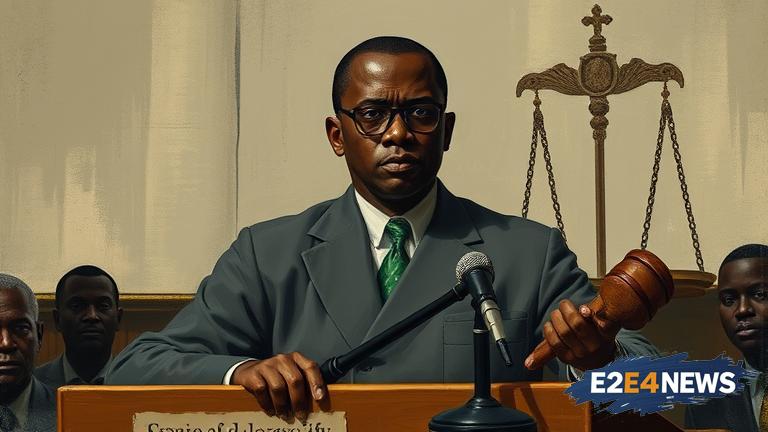The prosecution of Mohammed Adoke, a former Nigerian attorney-general, has been described as one of the greatest miscarriages of justice in Nigeria by Kanu Agabi, a senior advocate of Nigeria. Agabi’s statement has sparked a heated debate about the country’s justice system and its ability to deliver fair verdicts. The case against Adoke was widely publicized, with many questioning the motives behind his prosecution. Adoke was accused of involvement in a multi-billion dollar oil deal, but his supporters argue that the charges were trumped up and politically motivated. The prosecution’s case relied heavily on circumstantial evidence, which many believed was insufficient to secure a conviction. Despite this, Adoke was still prosecuted, leading to widespread criticism of the justice system. Agabi’s comments have highlighted the need for reform in Nigeria’s justice system, which has been plagued by corruption and inefficiency. The case has also raised questions about the role of politics in the justice system, with many believing that Adoke’s prosecution was a result of his political affiliations. The Nigerian government has been accused of using the justice system to silence its opponents and critics, rather than upholding the rule of law. The Adoke case is just one example of the many miscarriages of justice that have occurred in Nigeria, with many more cases going unreported. The country’s justice system has been criticized for its lack of transparency and accountability, with many cases taking years to resolve. The Nigerian Bar Association has called for reforms to be implemented to address these issues and ensure that justice is served. The international community has also expressed concern about the state of Nigeria’s justice system, with many organizations calling for greater transparency and accountability. The Adoke case has highlighted the need for urgent reform, with many believing that the country’s justice system is in crisis. The Nigerian government must take steps to address these issues and ensure that justice is served, rather than allowing politics and corruption to influence the outcome of cases. The case has also sparked a wider debate about the role of the justice system in Nigerian society, with many believing that it should be independent and impartial. The Nigerian people deserve a justice system that is fair, transparent, and accountable, and it is the responsibility of the government to ensure that this is delivered. In conclusion, the prosecution of Mohammed Adoke is a stark reminder of the need for reform in Nigeria’s justice system, and it is hoped that the government will take steps to address these issues and ensure that justice is served.
